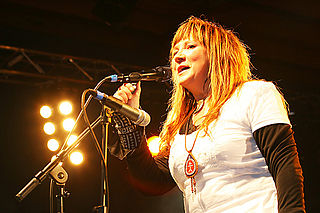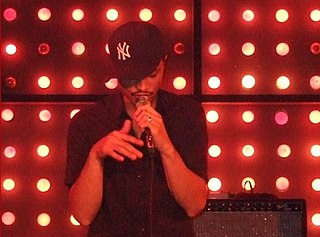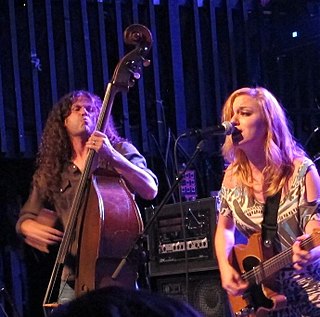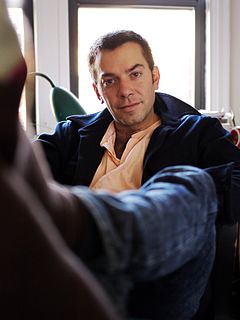A Quote by Gavin Creel
I think the '60s were a time where they were singing about what was going on around them.
Related Quotes
I always wanted to sing, I always loved to sing. As a child I was singing all the time, and my parents were singing all the time, but not the traditional songs because they were very Christian; the Christian Sámis learnt from the missionaries and the priests that the traditional songs were from the Devil, so they didn't teach them to their children, but they were singing the Christian hymns all the time. So I think I got my musical education in this way. And of course the traditional songs were always under the hymns, because it doesn't just disappear, the traditional way of singing.
Every generation likes to think that children don't read as much as they used to when they were young! You listen to some adults saying they were going around reading 'Ulysses' when they were seven or eight! I think children are voracious readers if you give them the right books and if you make those books accessible to them.
As a kid, in the Runaways, I would see the interviewers start to ask about our personal lives and what we did — and I could see the look in their eyes. They were practically frothing at the mouth. So if I answered these questions, I knew they were never gonna talk about the music. It was like that instinct — don’t go there, man. Have boundaries. Have mystery. You don’t have to let everybody in! I want to be singing to everybody, and I want everybody to think that I’m singing to them. Guys, girls and everyone in between.
I don't think it's something that people would ask a man. Some people make a huge deal out of the fact that I sing about drinking all the time, but I don't think of it as singing about drinking. It's singing about emotions, and sometimes that centers around drinking. To me, I'm writing about things that I'm going through that mean something to me, but some people just reduce it to: "She must drink all the time." But if a guy sings about that sort of thing, no one really looks twice.
The Chicago City News Bureau was a tripwire for all the newspapers in town when I was there, and there were five papers, I think. We were out all the time around the clock and every time we came across a really juicy murder or scandal or whatever, they'd send the big time reporters and photographers, otherwise they'd run our stories. So that's what I was doing, and I was going to university at the same time.
My dad and mom were more like World War II-era parents, even though it was the 1960s, because they were both born in the '40s. They were young adults before the '60s even happened, and married, and already having kids. But by the time we were adolescents in the '70s, the whole culture was screaming at parents, "You're a good parent if you're open with your kids about sex." They attempted to be open with us about sex, and it made them want to die, and consequently, it made us want to die.
In most places and times in human history, babies have had not just one person but lots of people around who were really paying attention to them around, dedicated to them, cared to them, were related to them. I think the big shift in our culture is the isolation in which many children are growing up.
Not only was Dan Cooper likely an alias, but many people suspected at the time were people living under assumed names. The '50s and '60s were a time when some people were desperate to leave their lives. They felt trapped in their marriages or their jobs, and they were seeking freedom. And one of the ways to do that, because technology wasn't advanced as it is today, was just to take over somebody's name.




































